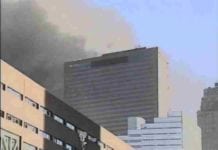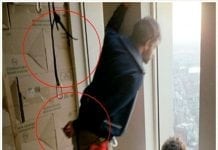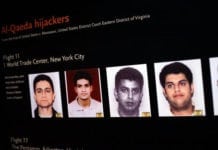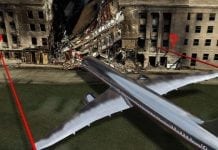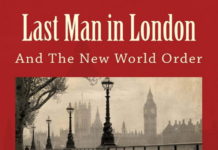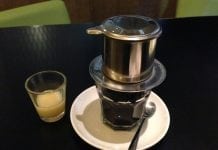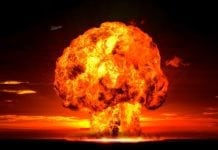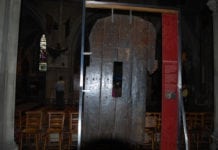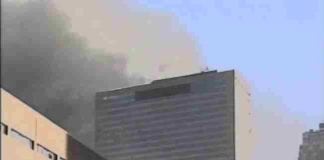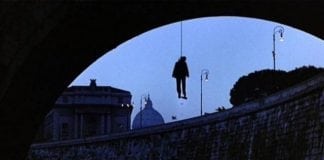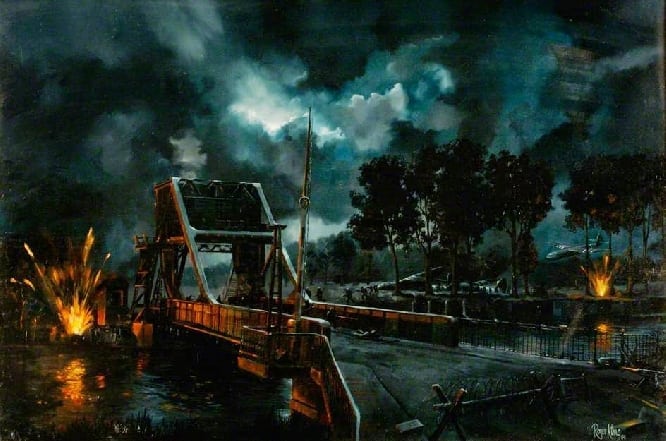
Everybody knows D Day, the allied invasion of Northern France on June 6th 1944.
But how many of us know about D Day Minus One, when 5000 British paratroopers dropped at night to take on the German positions from behind and secure river crossings vital to the D Day landing forces the following morning?
These extracts are taken from the personal memoirs of a British 6th Airborne Paratrooper, Albert Childs, and range between 1938 & 1948.
They are selected as stories that remind us of The Greatest Generation and the role of the British Paratrooper.
D-Day Minus One (June 5th 1944)
June 4 1944 is a date I remember very well. We were eating in the mess when the RSM walked in. He was a man who pumped information at you like a radio broadcast. He told us all leave and passes were canceled and that nobody was to leave the company’s lines or camp.
Effectively we had then been placed on standby. Rumours quickly went round the camp area and the other messes and shortly afterwards all of the sections of our company, each consisting of fifteen paratroopers, were dispatched to our battle formations.
One section of men went to divisional headquarters and one section to each of the three brigades, the 3rd, 5th and the 6th Air-Landing Brigade’s, which consisted of glider-borne troops. I remained at that time with company headquarters section attached to the 7th Parachute Battalion led by Lt Col Pine-Coffin, who had transferred from 1st Airborne with the rest of us.
The others were dispersed among the specialised troops such as the engineers, signals and artillery units. Only a rear party would remain and they were detailed to clear the camp of transport and other supplies.
The division had been ready and prepared for some time and finally we were taken off to various airfields around the south of England to await our orders. The unit I was attached to were sent to RAF Tarrant Rushton at Blandford Forum, a fleet air army station in Dorset. As we arrived there I saw rows and rows of C47 Dakotas lined up and the adrenaline began to run high among the men.
Although we hadn’t yet been given details of the operation ahead, I knew it wasn’t the type of small raid I had been used to because of the sheer numbers of men mobilising around us.
Usually it was only small numbers on the move but this time everybody was on the move. I thought it was a full scale rehearsal and so it seemed obvious to me that the Allied invasion of Europe wasn’t far off.
Our transport vehicles headed straight for the large aircraft hangers and almost immediately we were taken to draw our parachutes, allocated to an aircraft and led out to wait beside it.
At this stage some of us were still thinking it was another of the training exercises we had been doing on a regular basis, especially when we were ordered to put on the parachutes and inspect our arms and ammunition, making sure that everything was clean and in working order.
It was getting dark and unusually very cold for June and we stood waiting for our instructions, each of us shaking from the cold and nerves. Worse still, it began to rain, which rounded off a thoroughly miserable evening.
Eventually, a man from each aircraft was detailed to go across to the cookhouse and draw a bucket of hot cocoa, which provided much needed warmth as we stood huddled around the Dakota’s, sheltering from the rain beneath the fuselage and wings.
Then we were then ordered to embark, some still believing we were undertaking yet another rehearsal and training jump. But as the wind and rain worsened I started thinking that the chances of it being a training jump were increasingly unlikely.
I knew we were expected to train for all weather conditions, but it was now becoming so poor that any benefit would be outweighed by the risks involved.
It just wasn’t safe for hundreds of us to be jumping out of planes in the darkness of southern England. In France, however, the weather might have been better for all we knew. Truth was, nobody knew anything.
We sat and waited for what seemed to be all night long and the comedians and wind up merchants among us were having a field day with their captive audience. The conversation and banter was periodically broken as the aircraft intercom crackled into life and everybody sat in silence, listening with interest for news of what lay ahead for us.
Eventually our orders came through, which were to stand down and disembark. A sense of relief filtered through the men and we all took our parachutes off, leaving them on the ground underneath the Dakota in an attempt to keep them as dry as possible. I didn’t fancy jumping in those conditions so regardless of whether it was a training jump, or the real thing, I breathed a long sigh of relief.
We were allocated blankets and when a ring of security was placed around the airfield I knew for sure that it was no training exercise. By then I had a pretty good idea we were going in sooner rather than later.
Throughout June 5 we waited for our orders, but as the weather had improved a little I thought it was likely that the operation would start on that day. Come 22:00 hours we were again told to put on our parachutes and enplane. We numbered off using a process known as stick numbering.
There were twenty sticks and the number you drew would be the position you left the aircraft. I drew stick number two and we climbed, once again, into the Dakota and took up positions, mine close to the door. Some of the lads had been lucky enough to get hold of some whisky and brandy, which was being passed around.
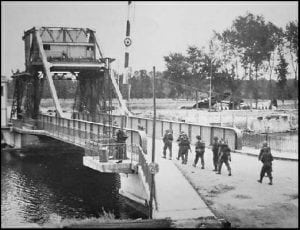
Suddenly the engines sprung to life with the familiar shuddering of the aircraft as it began shaking us around. The intercom crackled into life and a voice said ‘gentlemen this is the real thing, you are going to be the spearhead of the invasion of Europe’. I remember looking at my watch and saw the time was 22:15 hours.
The aircraft began to move slowly forward and then there was a whine from the engines and we sped down the runway. As we became airborne we knew there was no turning back. This, we realised, was at last the real thing.
We circled Blandford Forum until all the other aircraft had taken off and once a formation had taken place we were on our way. We were to find out later that in front of us were six gliders being towed with a company of the Ox and Buck’s Regiment, and a company of pathfinders who were the 22nd Parachute Independent Company.
The pathfinders were to land first and set up beacons for our pilots to home in on and locate our drop-zones. The glider-borne troops were destined to capture the two canal bridges at Ranville and Benouville and the one half a mile along the road crossing the River Orne. Our job was to reach and reinforce those glider borne troops as soon as we could.
Into the night we flew, getting closer and closer to our destination and everything became quiet in the aircraft. The light-hearted banter had stopped completely and the tension was unbearable. A young man called Ball looked across and asked me what the first action drop was like.
I told him they were always different and that I didn’t know what to expect either. I didn’t want him to worry that he was at a disadvantage. Anyway, by then I was just as nervous as the rest of them, but I couldn’t let it show. I shouted down the line for the men to blacken their hands and faces and we all waited for the dispatching sergeant.
Then it was just a matter of waiting for the green light. The call came to stand up and hook up. We all stood up and checked our chords from the parachute to the main line running through the aircraft. This was the moment when everybody’s bowels tightened. But a short smile or a wink at the man next to you did a lot to settle the nerves.
The dispatching sergeant then opened the door and a cold rush of air engulfed us. We all waited, staring at the red light and wondering when it would turn green. At number two I was already close to the door and could see the sky filled with aircraft around us.
Suddenly the red light flicked off and was replaced by a green one. A moment later I was falling quickly into the darkness with the sound of the dispatching sergeant’s voice shouting ‘go, go, go’ ringing in my ears. Cold and damp air enveloped me, the wind and the slipstream of the engines caught me as I sped towards the ground.
It was very dark and my eyes were not yet used to it. ‘Open you bastard,’ I screamed and then I felt a jerk on the shoulders as my parachute developed. And then a swishing sound as it unfolded above my head.
I was now steadily floating towards the ground. As my eyes became accustomed to the darkness certain things came into view. I could see a glistening of the river, which must have been The Orne, below and to my right.
I dropped through the darkness, desperately trying to make out an object of some sort. Maybe there would be a building, or a tree, so I could at least have some perspective and be ready. But I hit the ground with a wallop and the wind was completely knocked out of me. I just didn’t see it coming.
I lay there for a few seconds listening to the sound of boots hitting the earth all around me and the gasp of surprise coming from men who were trying to be as quiet as possible. I was relieved because it meant the others had followed me out of the plane after all.
I had been having a recurring nightmare, in which the D-Day operation was aborted, but only after myself and a handful of others had already jumped into the darkness.
Slightly comforted by this, I struggled out of my harness as quickly as I could and, crouching low to the ground, had a good look around. A short distance away I could make out the silhouette of one of the containers that had been dropped just ahead of us.
Not with us, or after us, as the heavy pallets may have landed on top of groups of paratroopers causing unnecessary casualties and so they went out first. The containers carried all the weapons, ammunition and rations we needed for the operation we had been assigned to over the following few days.
I sprang to my feet and made for one of them, but a heavy landing had jarred my knee and after only a few steps my leg buckled and I stumbled into the ground. At that moment a burst of machine gun fire slammed bullets into the earth only a few yards ahead of me.
That knee injury, which was to plague me later in life, had at least saved it for me, for the time being anyway. I lay still, looking into the darkness towards the direction of the gun fire, but it didn’t happen again so I assumed it was a lone sentry and one of the others had already got to him.
All I could hear was the rustle of movement, nervous whispers and the cry of injured paratroopers somewhere in the darkness. It was inevitable that some would land badly on the night-time operations. They might be tangled in trees or caught on roofs and some even landed on spiked railings. That was never very nice to see, or hear.
I was twenty-five years old at the time and already a veteran of many campaigns of the long war. Some of the kids jumping with us were as young as nineteen and possibly in action for the first time. Certainly for the first time in total darkness and the fear was there for all to see.
Hearing the injured always left me feeling sick in the stomach, but at the same time I remember having a selfish sense of it not being my problem. At least it wasn’t me. I think that was true of many of us if we are honest about it and yet that is something I am still not very proud of. Even now.
Young men injured on these sorts of raids were usually left where they lay. Hopefully the
medics picked up some of them later but we knew it could be a few days before the land forces reached us there, close to Caen.
And that was only if they were successful in landing in the first place. Nothing was certain and we all knew we were leaving some of those brave boys to die. It is the worst feeling in the world to be running away from injured men.
To be leaving them alone in the darkness. Some of them were screaming and some of them simply crying out for their mothers.
Always for their mothers. No, I haven’t forgotten that. – Albert Childs
The Greatest Generation: Diary of a 1st & 6th Airborne Paratrooper (1940-1950)
The Greatest Generation extracts
Albert Jack AUDIOBOOKS available for download here
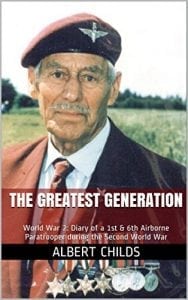
The Greatest Generation

